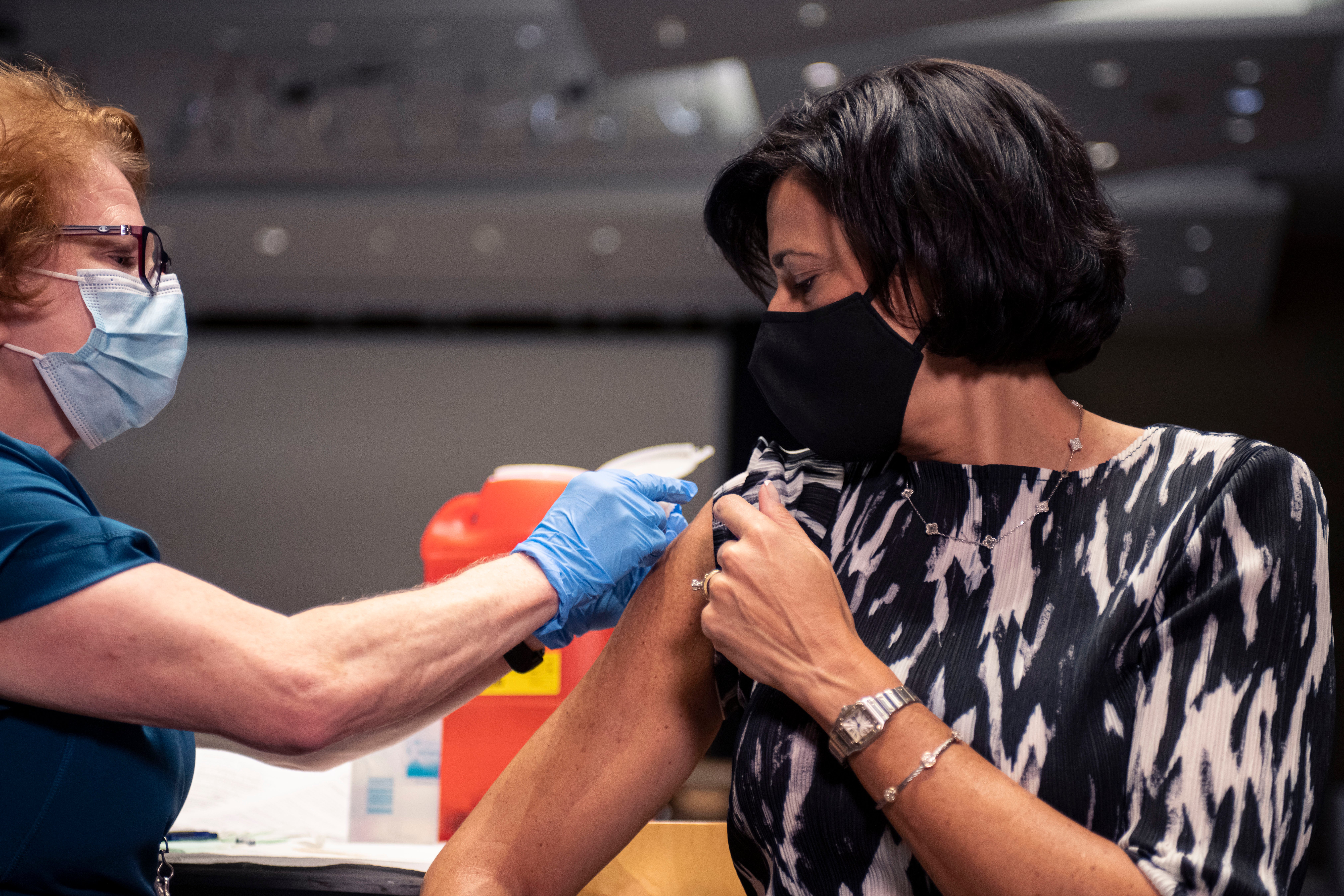CDC director defends reduced Covid isolation guidelines after blowback
Some public health experts are accusing the CDC of changing guidance based on political or economic expediency rather than science

Your support helps us to tell the story
From reproductive rights to climate change to Big Tech, The Independent is on the ground when the story is developing. Whether it's investigating the financials of Elon Musk's pro-Trump PAC or producing our latest documentary, 'The A Word', which shines a light on the American women fighting for reproductive rights, we know how important it is to parse out the facts from the messaging.
At such a critical moment in US history, we need reporters on the ground. Your donation allows us to keep sending journalists to speak to both sides of the story.
The Independent is trusted by Americans across the entire political spectrum. And unlike many other quality news outlets, we choose not to lock Americans out of our reporting and analysis with paywalls. We believe quality journalism should be available to everyone, paid for by those who can afford it.
Your support makes all the difference.Centres for Disease Control and Prevention director Rochelle Walensky has defended the agency’s decision to reduce the isolation period after testing positive for Covid-19 as backed by hard-won knowledge gained over the last two years during the coronavirus pandemic.
Earlier this week, the CDC revised its guidance for quarantine and isolation for the general population to reduce the amount of time someone who tests positive for Covid-19 needs to remain isolated to a period of five days after a positive test result.
The agency said remaining isolated for five days, followed by five more days wearing a “well-fitting mask” would “minimize the risk of spreading the virus to others”. In the case of an exposure to a person infected with Sars-CoV-2, the agency said a quarantine period was unnecessary if the exposed person is vaccinated and had received a Covid-19 booster and wears a mask for 10 days after any exposure.
Previously, people who tested positive for Covid-19 or who were exposed to the coronavirus needed to isolate for 10 days after any positive test or exposure. The CDC’s announcement was greeted with dismay in some public health circles, with a number of experts suggesting that the decision to reduce the quarantine and isolation time was driven more by a desire to prevent economic disruptions from the fast-spreading Omicron variant rather than any scientific or public health expertise.
Speaking during a White House Covid-19 press briefing on Wedneday, Dr Walensky rejected the idea that the new CDC guidance was based on anything but science.
“These updates for recommendations were made to reflect what we currently know about Covid-19 infections, including how long a person is most infectious,” Dr Walensky said.
“Let me make clear that we are standing on the shoulders of two years of science, two years of understanding transmissibility and a lot of information that we have gleaned from the wild type virus, as well as the alpha and delta variants, and more that we continue to learn every single day about Omicron,” she said.
“We do know the vast majority of viral transmission happens in those first five days somewhere in the 85 to 90 per cent range, so if a person can isolate for the first five days, they absolutely should”.
The CDC director added that the reason the agency did not require a person to get a negative test result before leaving isolation is because PCR testing is unhelpful since a Covid-positive person can get a positive PCR result for up to 12 weeks after infection, long after they lose the ability to transmit the virus. Nor would antigen tests such as the rapid tests sold over the counter in the US be effective at that stage of infection.
“This science as well as what we know about the protection provided by masking, vaccination and booster doses … booklets were all part of what informed our updated recommendations,” she said.
Join our commenting forum
Join thought-provoking conversations, follow other Independent readers and see their replies
Comments